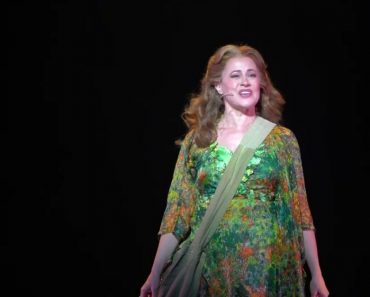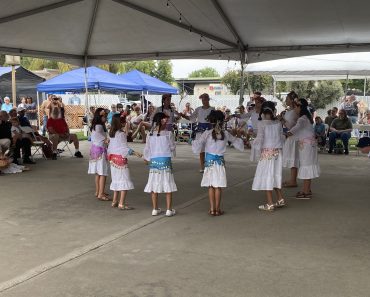Erini spends most of her time in New York, embodying two major currents of our era: women’s empowerment and the renewed embrace of tradition. Born in Crete, the performer, composer, and producer has managed to reimagine one of the island’s most male-dominated musical styles—the rizitiko—and bring it onto the global stage.
Her latest song, Se Psilo Vouno (On a High Mountain), now competing at the Grammy Awards, blends the authenticity of tradition with a cinematic atmosphere and daring orchestration. Her voice becomes a bridge between past and present, breathing new life into a musical heritage once reserved almost exclusively for men.
Often appearing on stage dressed in a traditional Cretan men’s cloak, Erini challenges social stereotypes and shows that women can chart their own artistic paths. From New York to her beloved Crete, and from Berklee College of Music to international concert halls, she proves that tradition can serve as a source of strength, inspiration, and global dialogue.
GALA: What drew you to rizitiko, one of Crete’s oldest forms of traditional song?
ERINI: Rizitiko is the oldest form of song in Crete. For many Cretans, it feels like part of our DNA, an experience handed down through generations. It originated in western Crete but is sung all over the island. I grew up hearing about it from my grandfather, who was a priest and sang rizitika. He passed away when I was young, but my mother told me his stories, and I still had cassette recordings of him singing. My mother insists my voice resembles his—even though mine is, of course, female.
Traditionally, rizitiko is sung only by men in many parts of Crete. My version reimagines it: I added cello, some improvisation, and layered backing vocals. I gave it a musical foundation rooted in my influences from classical music and modern improvisation. I may have grown up in Crete, but my training was in classical music—I studied piano, cello, and played in the municipal orchestra of Heraklion. Later, I studied at Berklee College of Music in the U.S., focusing on Global Jazz—a form of creative music drawing on traditions from around the world.
GALA: How did Se Psilo Vouno end up being submitted to the Grammys?
ERINI: For the past two years, I’ve been a member of the Recording Academy—the Grammy organization. Membership is usually extended to artists who have contributed to nominated projects. Two years ago, I performed with Danilo Pérez and the Global Messengers, a Latin jazz ensemble that received a Grammy nomination. That made me eligible to join the Academy and submit future projects. This year, Se Psilo Vouno is competing in the Best Global Music Performance category.
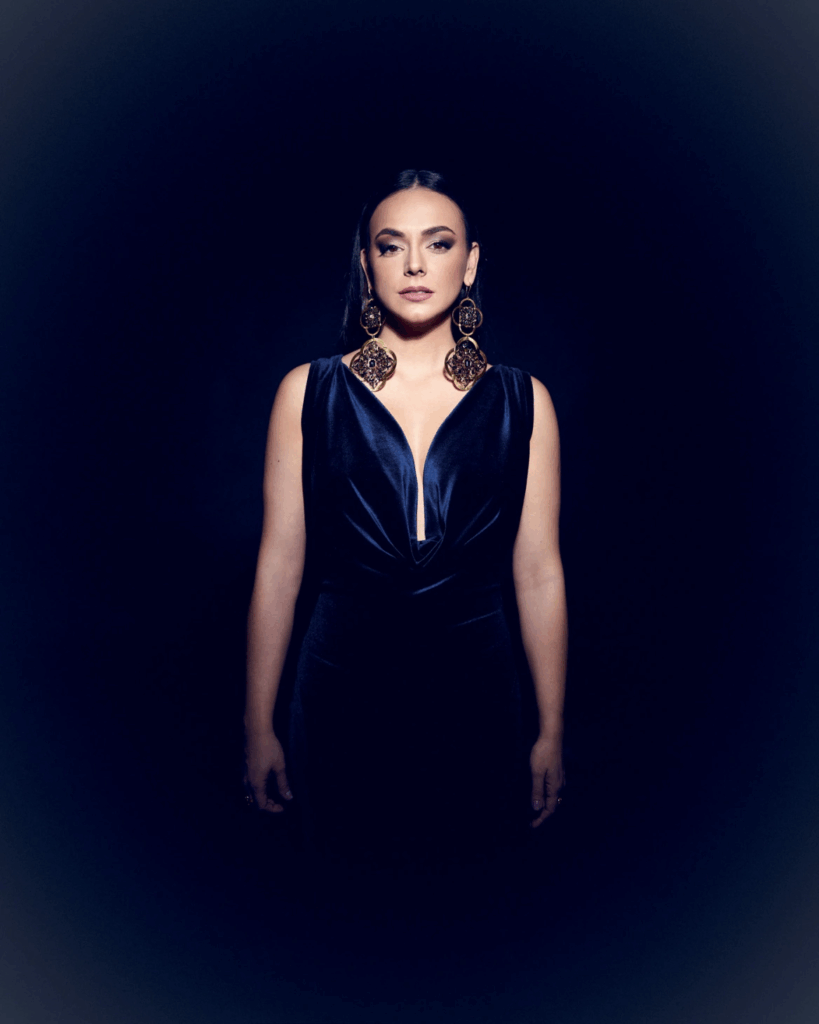
GALA: We’ve seen a revival of traditional Greek music—from young people embracing festivals to Claudia’s Eurovision entry. Do you see a trend here?
ERINI: Absolutely. Globalization and the internet give us access to everything, but they also make us crave identity and roots. That’s what I see happening with my generation (I’m 34). Many young artists have a global music background, yet they still want to define what it means to be Greek—or Cretan—within that context. It’s beautiful to see.
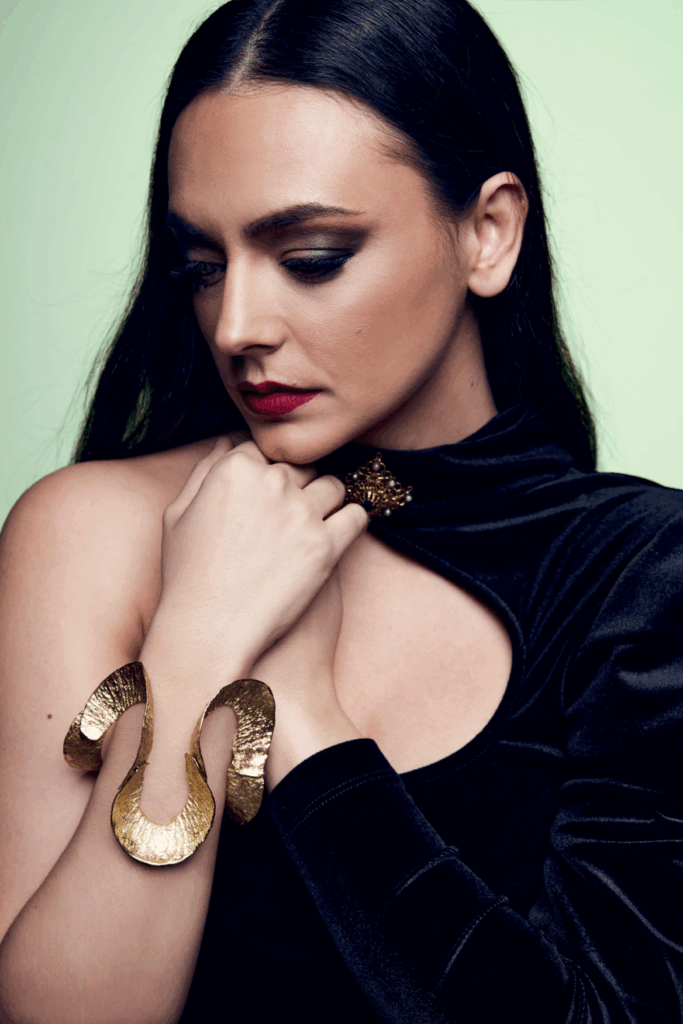
GALA: Why did you choose Se Psilo Vouno specifically?
ERINI: I knew I wanted to record a rizitiko this year and submit it to the Grammys. Last year I submitted Asia Minor songs; this year, Cretan. Voting for the Grammys starts October 3 and lasts two weeks, with the official nominations announced in December.
For me, it was an emotional choice. Singing rizitiko as a woman is powerful—it lifts me up. Se Psilo Vouno is iconic in Crete, almost like Synnefiasmeni Kyriaki is for the rest of Greece. The lyrics speak of an eagle perched on a snowy mountain, praying for the sun to rise—a metaphor for liberation. Many criticized me for daring to sing it, but I identify with women in traditional societies still fighting for freedom. Singing it gives me chills.
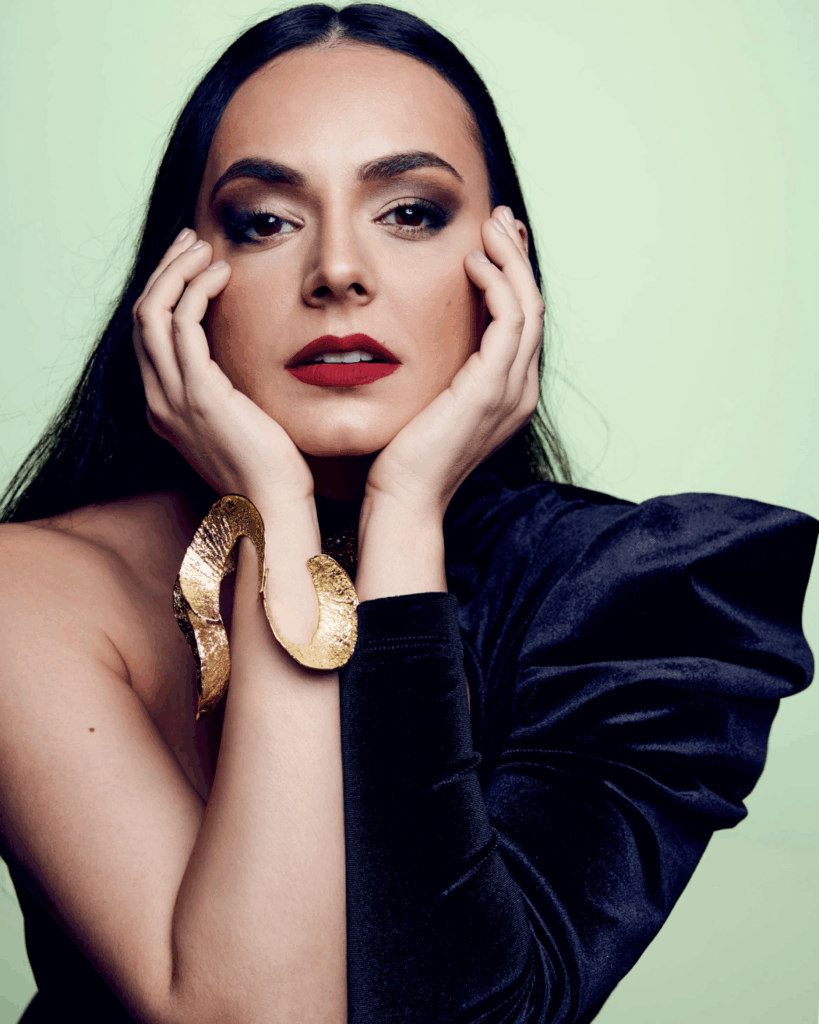
GALA: What kind of criticism did you face?
ERINI: When I released the song, I got a lot of backlash: “Women don’t sing rizitika,” “Leave this to men,” “You’re wearing a man’s cloak—sacrilege!” But I think challenging those boundaries is exactly the point.
GALA: Where do you see Greek women singers today?
ERINI: Today, women have incredible power—as artists, producers, and leaders of their own careers. Despite obstacles, we can now create on our own terms. That’s liberating. And in recent years, Greece has produced so many remarkable women in music.
GALA: How do you balance emotion and logic when making artistic decisions?
ERINI: I always follow my instincts. If a song calls to me, even if others dismiss it, I trust my gut. I avoid choices that don’t align with my values. Of course, temptations are everywhere, but if something doesn’t feel authentic, I won’t do it. My inner compass—my stomach, really—guides me both in music and in life.
Ask me anything
Explore related questions



